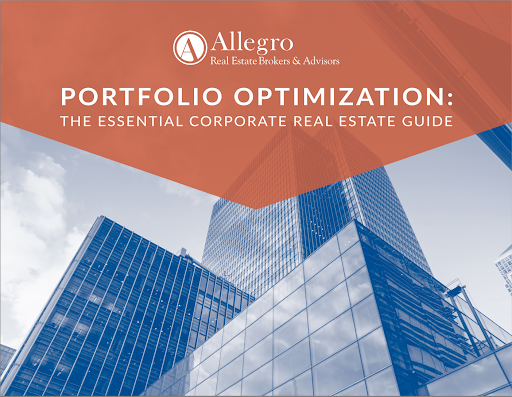Whether you are looking to buy or lease your next commercial real estate property, hiring the right firm to represent you in the transaction is key to the success of the deal. Does the broker have the expertise and experience needed to consider all your needs and to save you money in both the short and long term? Are they truly a “one-stop-shop” that can help you navigate the oftentimes confusing waters of location decisions, lease vs. own, negotiations and contracts? Before you begin the search for your next business location, look for these five characteristics in a broker to ensure you’re choosing the right partner for you and your business.
1. Referrals from a trusted network of peers
The first step in searching for a commercial real estate broker is to ask around for referrals. Nothing is better than a recommendation from someone who has first-hand experience working with the broker as client, attorney, architect, etc. When you receive a referral, ask the following questions to determine if you want to investigate further.
What were they great at? What were they not so great at? Identify the broker’s strengths and weaknesses right off the bat to determine if they will be a good fit for your culture, company, and specific real estate needs.
Will you work with them for your next commercial real estate transaction? If a person is likely to work with the broker again, it’s pretty safe to say that they did a good job.
2. Commercial expertise
Seek out a broker with strong corporate real estate expertise. A great indicator is the company’s roster of clients. Who have they done work for in the past? What type of work was it? Are their clients similar to you? Look for case studies or success stories on the company’s website proving that they have a track record of success. Ask for references.
3. Exclusive tenant representation
Brokers who represent landlords may end up acting as Dual Agents, meaning they represent landlord and tenant in the same deal. As a result, Dual agency brokers can’t advocate for either party. If you’re looking to lease or buy, a broker who is an exclusive tenant representative will be able to negotiate on your behalf to get the best terms for you. Brokers who represent landlords get a lot more deals from their landlord relationships (maybe every month) in contrast to tenants (maybe every 5 or 10 years). Where do you suppose their loyalty runs?
4. Knowledge of the real estate market and trends
In this business, it’s all about what and who you know. The most important thing for a broker to have is a proven process that helps tenants make the best decisions and creates the most negotiating leverage. How do they help tenants make decisions? How do they create competition between landlords for your deal? Ask their references how detailed they are and whether they helped them all the way through the process, to occupancy and beyond. Also, you want to find a broker who’s well connected in the industry and has the access to data, listings, resources, and tools that will help you secure the best deal.
5. Shows you all potential properties
If you decide to use a broker who is not an exclusive tenant representative, be leery of a broker just showing you properties listed by their company (brokerages double their fees on their own landlord listings). Work with a broker committed to showing you all of the potential spaces based on your needs, not theirs.
All in all, you want to find a broker you can form a strategic partnership with and one that is going to advocate on your behalf to lead you through the successful acquisition of the right location.







